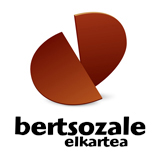Library - View details To know more about this section
Literacy, orality and memory : the historical intersection of Gowa and Polombangkeng
 Article:
English.
Online
Library collection
Article:
English.
Online
Library collection
- Author(s)
- Ahmad, Taufik
- Title
- Literacy, orality and memory : the historical intersection of Gowa and Polombangkeng / Taufik Ahmad.
- In
- Proceedings of the 9th Asbam International Conference (Archeology, History, & Culture In The Nature of Malay) (ASBAM 2021), Atlantis Press SARL, 2022, 562-567
- Subjects
- Indonesia
- Content
-
Testu osoa
- Type of material
- Article
- Legal deposit
- 978-94-6239-571-8
- ISBN / ISSN
- 2352-5398
- Notes
- Bibliografia: 566-567 or.
In the sixteenth century, Gowa had conquered all the Makassar kingdoms, including Polombangkeng. To maintain their hegemony, Gowa began to write their historical texts that chronicled their origins and preserve their victories. At the same time, Polombangkeng began to produce resistant orality to the Gowa’s literacy. This article discusses the historical intersection of Gowa and Polombangkeng through a texts analysis of Gowa’s literacy and Polombangkeng’s orality. By using an interdisciplinary approach, history, philology, and anthropology, this study proves that there are historical intersections, similarities, and contradictions between Gowa’s literacy and Polombangkeng’s orality. Gowa narrates their victory through literacy, while Polombangkeng narrates their triumph through oral tradition. Both Gowa’s literacy and Polombangkeng’s orality are politics of memory that aim to maintain their collective memories. Even though Polombangkeng’s orality is only a marginalized narration, it is transmitted in various ways, including music, rituals, oral traditions, and continues to be reproduced to this day. Meanwhile, Gowa’s literacy tends to stagnate, especially after the fall of Gowa in 1667. Gowa stopped writing their history and their collective memory transmission tends to weaken.


